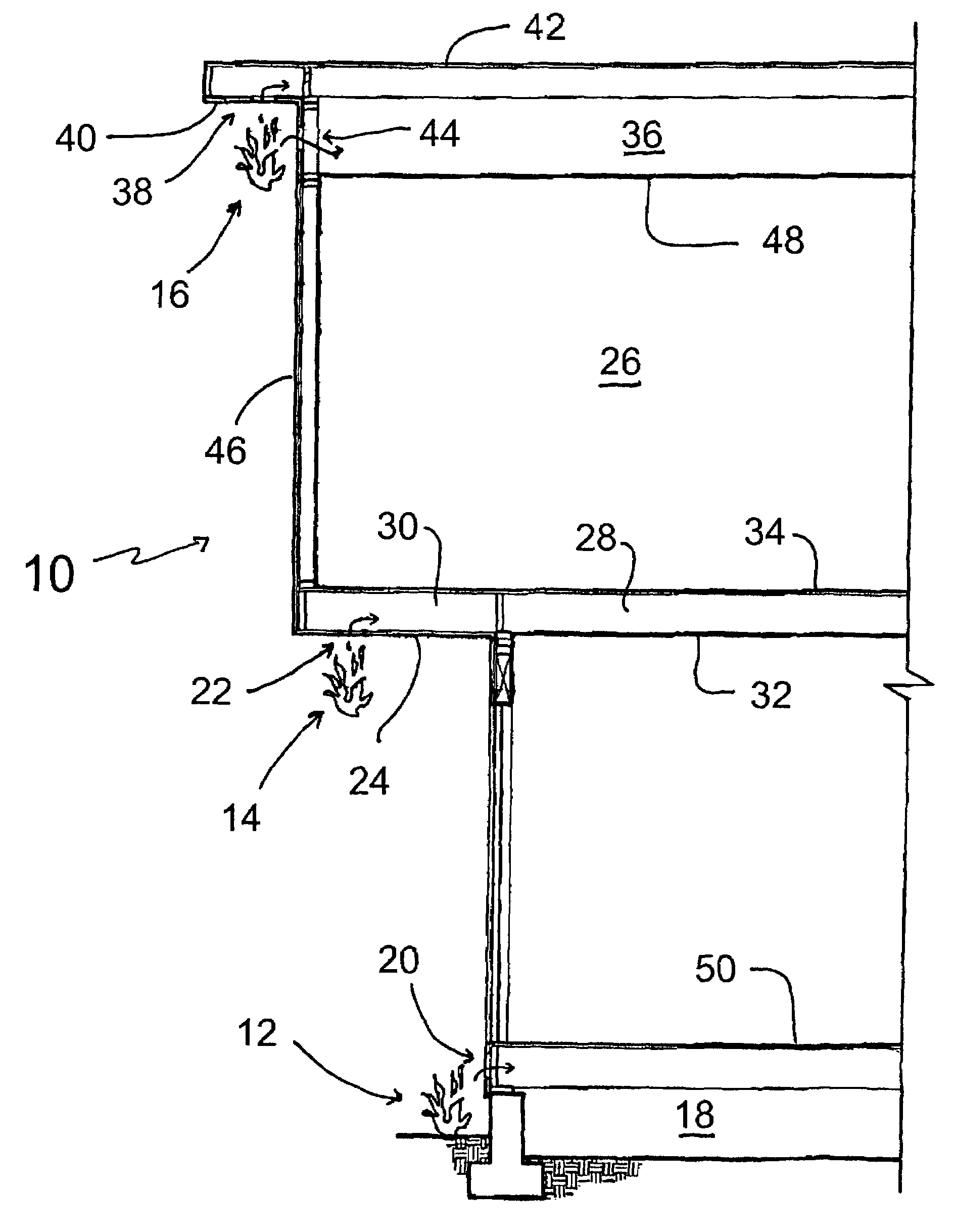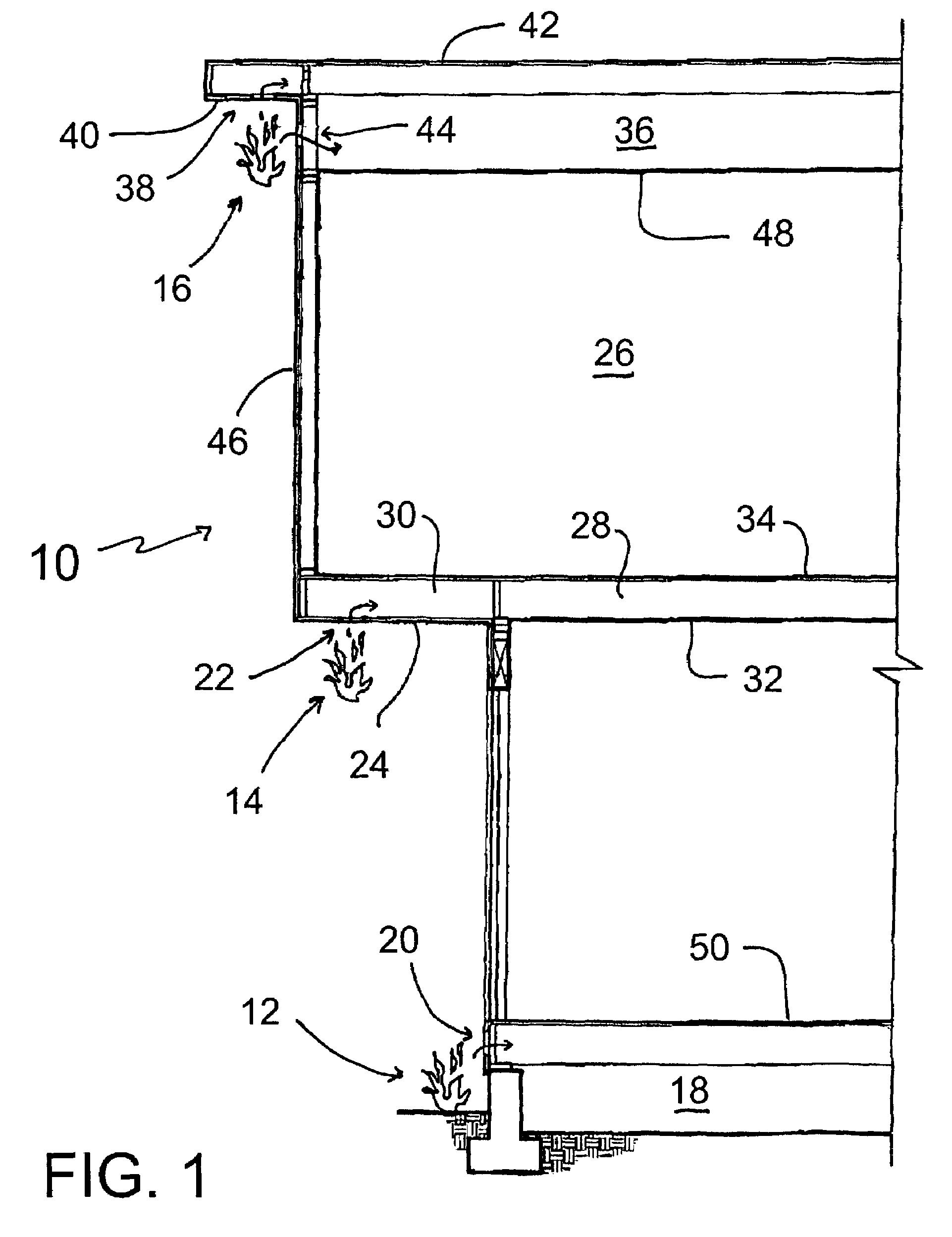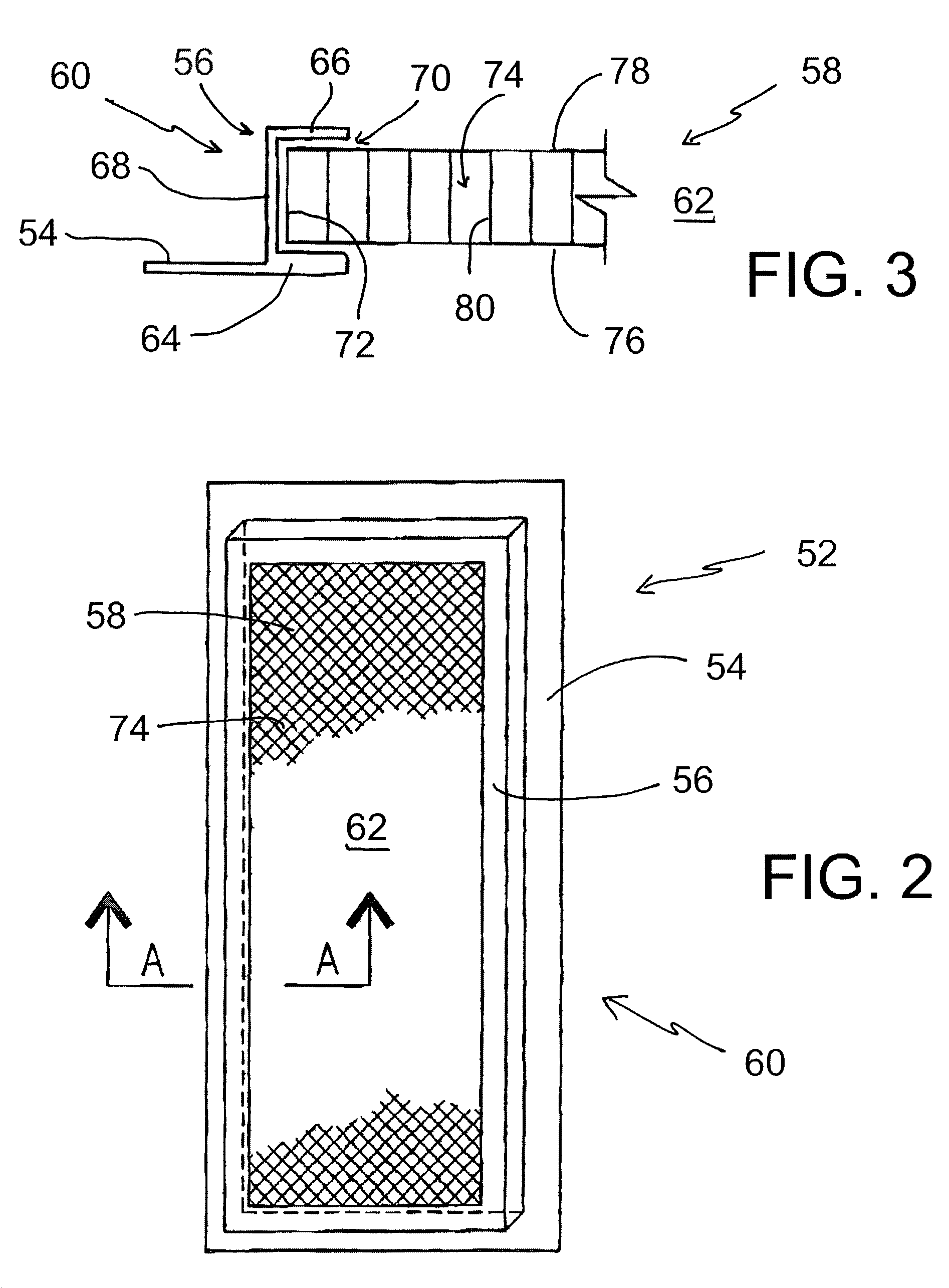Self-closing vent
a vent and self-closing technology, applied in ventilation systems, lighting and heating apparatus, heating types, etc., can solve the problems of concomitant damage to property, occurrence of wildfires, and little attention to vents connecting the exterior and the interior of buildings
- Summary
- Abstract
- Description
- Claims
- Application Information
AI Technical Summary
Benefits of technology
Problems solved by technology
Method used
Image
Examples
Embodiment Construction
[0012]Referring to FIG. 1, a diagrammatic side view in cross-section of a building 10 shows how an external fire, represented by flames 12, 14, and 16, can gain entrance into a building. Crawl space 18 includes vents 20 which allow circulation of air therethrough to prevent trapping of stale air and moisture therewithin. Soffit vents 22 through eave 24 beneath the overhang of an upper story 26 provide required venting, particularly of moisture, of joist cavities 28 formed between structural joists 30, ceiling 32, and floor 34. The accumulation of hot air in attic 36 is relieved either by soffit vents 38 in the eaves 40 of roof 42 and / or through attic vents 44 which penetrate through external walls 46 above ceiling 48. The foregoing describes common practices in the building industry.
[0013]Vents opening externally of the building are usually designed to freely promote circulation, and no thought has been given to closing them. Soffit vents 22 and 38 are often just holes formed in ext...
PUM
 Login to View More
Login to View More Abstract
Description
Claims
Application Information
 Login to View More
Login to View More - R&D
- Intellectual Property
- Life Sciences
- Materials
- Tech Scout
- Unparalleled Data Quality
- Higher Quality Content
- 60% Fewer Hallucinations
Browse by: Latest US Patents, China's latest patents, Technical Efficacy Thesaurus, Application Domain, Technology Topic, Popular Technical Reports.
© 2025 PatSnap. All rights reserved.Legal|Privacy policy|Modern Slavery Act Transparency Statement|Sitemap|About US| Contact US: help@patsnap.com



